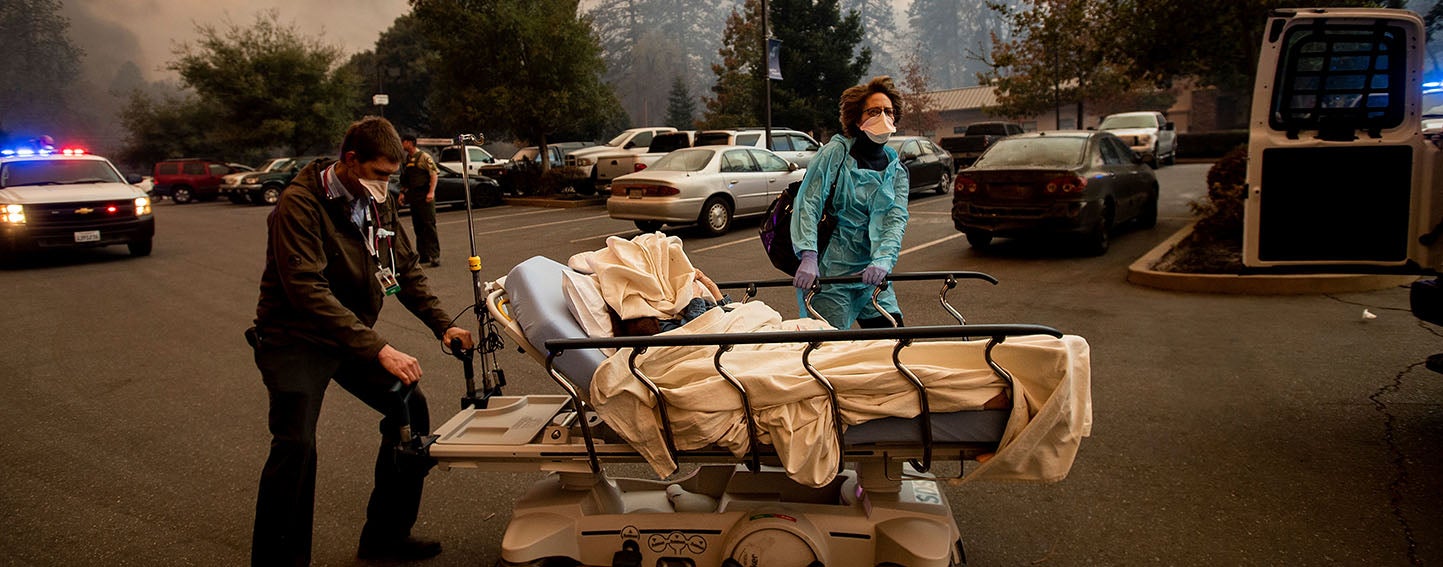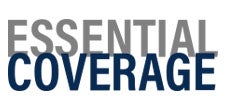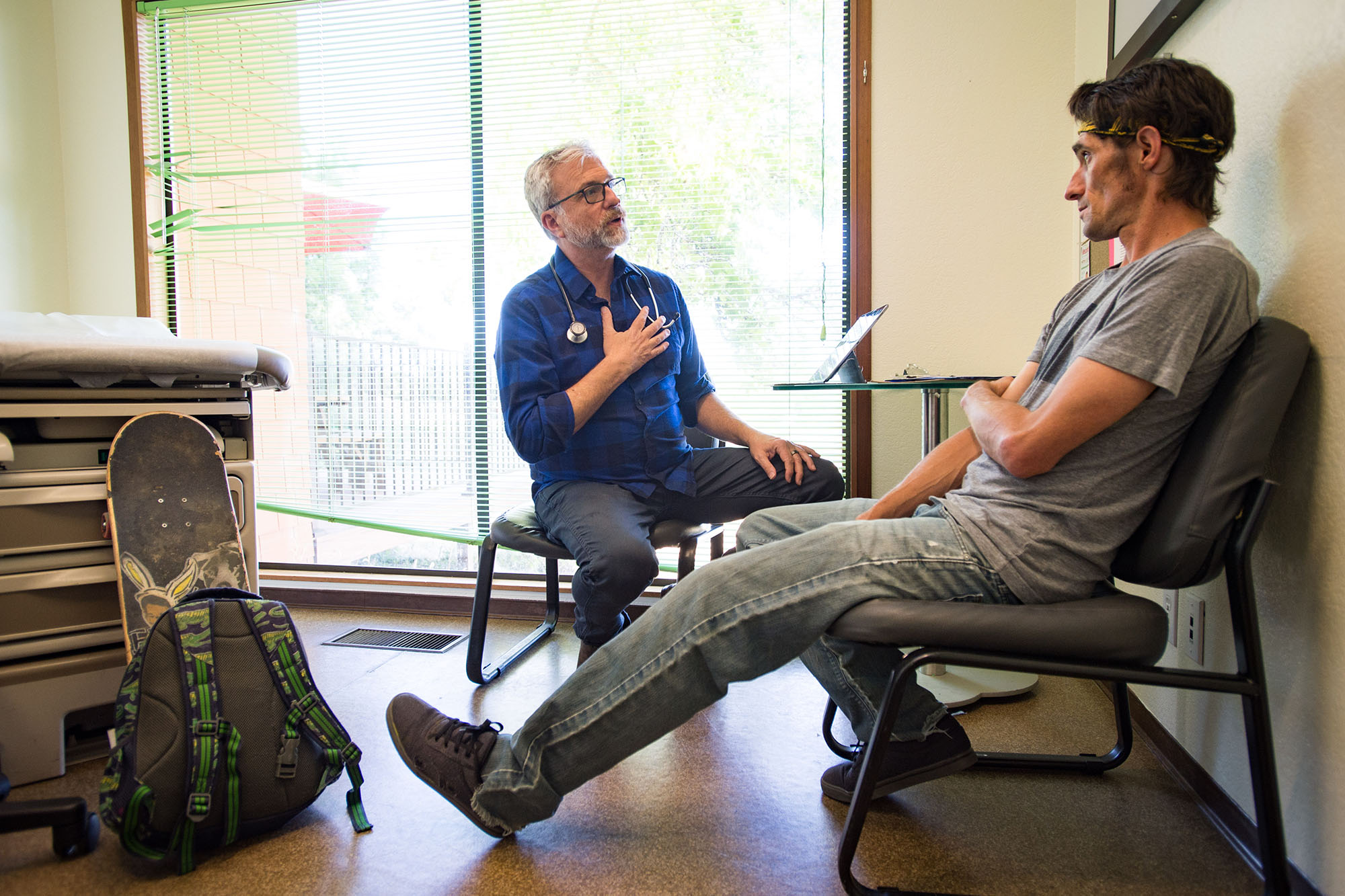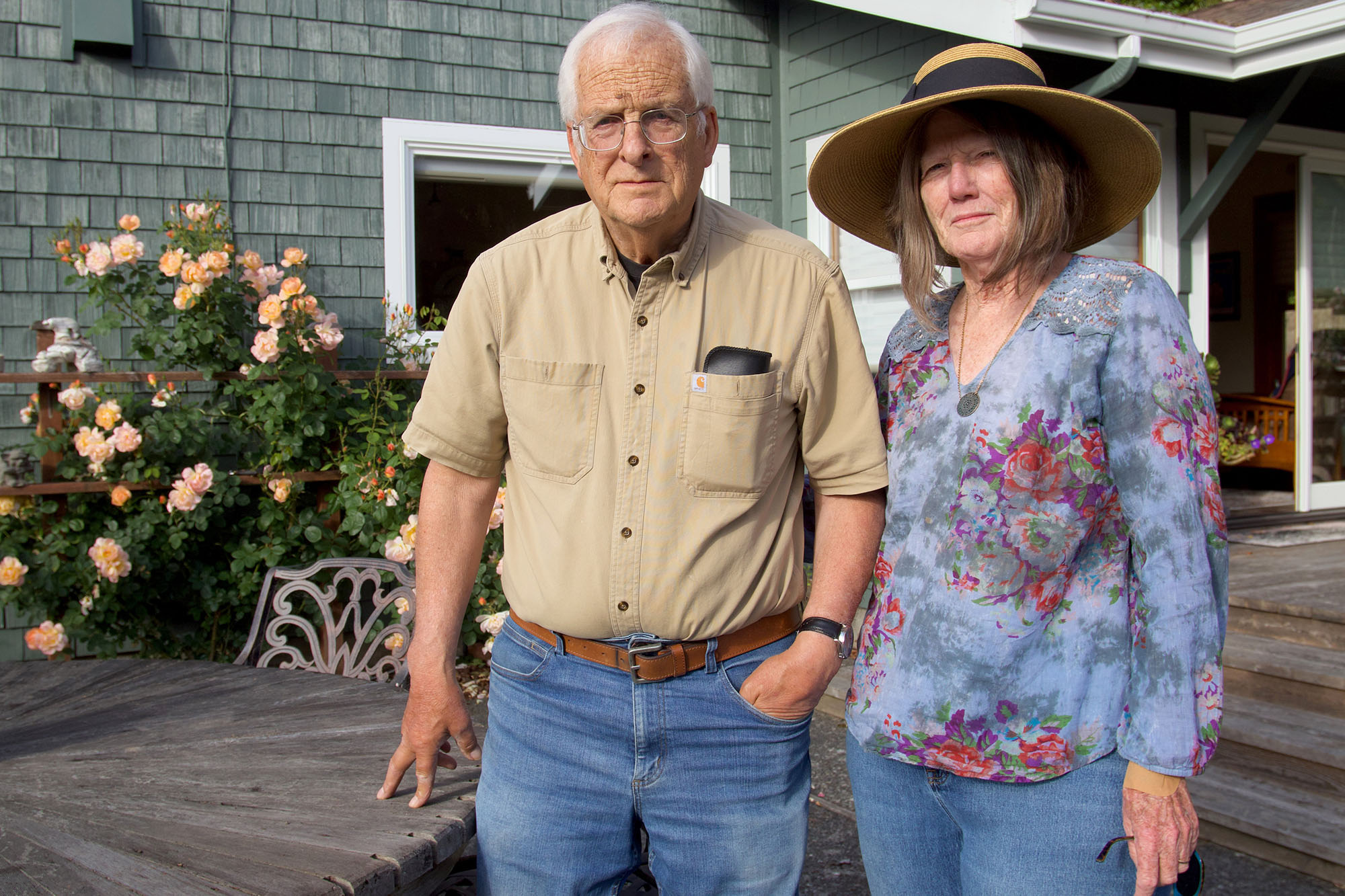
As we head into the Thanksgiving holiday, we want to take a moment to express our gratitude for those across the health care system who provide care on the front lines, as well as those who work behind the scenes to make the policy that ensures that all Californians have access to health care. Here’s a partial list of what we’re grateful for at CHCF.
We Are Thankful for Bravery in the Face of Wildfires

As staff arrived at Adventist Health Feather River Hospital in Paradise, California, around sunrise on November 8, few knew that the fire growing nearby would become the deadliest and most destructive wildfire in California history. As of this writing, the Camp Fire has claimed at least 63 lives and destroyed 142,000 acres. Officials say 631 people are still unaccounted for.
That morning, before the nightmare began, all was routine at Paradise’s main hospital. Then, at about 7:30 AM, “flames jumped a canyon separating the hospital from the fire, and the medical staff were ordered to get patients out of the building and then flee themselves,” reported NBC’s Kalhan Rosenblatt. Thanks to the staff’s fast action and well-honed evacuation skills, every patient was moved out of the hospital within 20 minutes. Karen Davis, a surgical nurse there, told Rosenblatt, “We packed [patients] in every vehicle possible” — every type of patient, from newborn to elderly.
Allyn Pierce, a registered nurse and intensive care unit (ICU) manager at Adventist Health, and two of his colleagues were among the last to evacuate. As they attempted to flee in Pierce’s truck, they found themselves trapped in a long line of vehicles with flames consuming the terrain on both sides of the road. An abandoned vehicle on the road blocked their way. Amy Wang reports for the Washington Post that Pierce’s colleagues took cover in a fire engine that was parked nearby while Pierce stayed in his truck and braced for the worst, even recording a goodbye video to his family on his phone. And then, out of nowhere, a bulldozer showed up and pushed the abandoned vehicle out of his path.
Suddenly free to maneuver, Pierce turned his truck around and drove right back to the hospital, where he found a small crew of doctors, nurses, firefighters, police officers, and other first responders in the parking lot triaging and treating patients with smoke inhalation and burns. They stayed with the patients until California Highway Patrol officers cleared a path to safety. “This is what we do,” Pierce told the New York Times. “I’m not trying to be brave, but any nurse, any health care worker, any cop, they were there, and they all did their jobs, and they all did it well.”
Inspiring scenes like this are happening all over California thanks to firefighters, emergency workers, and health care providers working around the clock at the Camp Fire in Butte County and the Woolsey Fire in Los Angeles County. Northern California Grantmakers and Southern California Grantmakers have gathered information on how to help.
We Are Thankful for Medicaid’s Momentum
Medicaid expansion is on a roll. The 53-year-old state-federal program provides needed health coverage to more than 66 million Americans. California’s Medicaid program, Medi-Cal, covers 13.2 million people. Last week, voters in Idaho, Nebraska, and Utah passed ballot measures to expand their state Medicaid programs, and voters in Kansas and Maine elected governors who are expected to expand Medicaid. The net effect is that an additional 500,000 Americans could gain health insurance soon. Read more about voters’ support for Medicaid.
Medicaid expansion is part of the Affordable Care Act (ACA), but as Sarah Kliff writes in Vox, it has “quietly proved to be a political success in a way that the ACA has not. Even conservative voters who oppose the health care law express support for the program that provides health benefits to poor Americans.” Kliff points to a statewide survey by Boise State University that shows only 35% of Idaho voters approve of the ACA, but 75% were in favor of Medicaid expansion in the state.
Medicaid covers 3.4 million children of veterans and 200,000 children of active military families.
—TriCare for Kids Coalition
Gaining access to quality care is especially important for people with serious chronic health conditions, and a new study (PDF) from America’s Health Insurance Plans demonstrates the value of Medicaid for this group. “Patients covered by Medicaid who are diagnosed with asthma, diabetes mellitus, or mood disorders had clinical care that was comparable to patients with commercial health care coverage,” the researchers wrote. When compared to the uninsured, patients covered by Medicaid had “far superior access and receipt of preventive care,” they said.
Children in military families also benefit from Medicaid. According to a new report from the TriCare for Kids Coalition (PDF), Medicaid covers 3.4 million children of veterans and 200,000 children of active military families. Because the program has been shown to support healthy childhood development and improve educational outcomes in children, “Medicaid matters to our military capability,” helping develop children into competent, healthy, and educated adults who might staff it. The coalition cites data that “children of service members are more than twice as likely to join the services when they become adults as children in families with no connection to the armed forces.”
New research also suggests that Medicaid matters to civic engagement. In the New York Times, Margot Sanger-Katz writes about “a new body of evidence that strongly suggests that giving people coverage through expansions of the Medicaid program increases their likelihood of participating in the next election. Medicaid expansions seem to raise both voter registration and voter participation, at least temporarily.” Researchers aren’t sure why Medicaid coverage is correlated with higher civic engagement, but it’s another benefit to add to a list that includes better health outcomes, family finances, and access to care.
We Are Thankful for the Resilience of the ACA
The ACA has faced many challenges since President Barack Obama left office in 2017, but it’s still standing. Andy Slavitt, founder of United States of Care and former administrator of the Centers for Medicare & Medicaid Services, writes in an op-ed for USA Today, “It is clear for the first time since Donald Trump became president that there are no longer the votes to repeal the ACA.”
Now is the time to build on the gains of the ACA. New data from the 2017 California Health Interview Survey (CHIS) show the ACA has narrowed disparities in coverage rates among racial and ethnic groups. In the California Health Report, Claudia Boyd-Barrett writes, “African Americans, Asians, and Pacific Islanders living in California are just as likely to have health insurance as whites, marking a significant turnaround from five years ago,” before the ACA took effect. However, the uninsured rate for Latinos is still high — almost twice that of other racial and ethnic groups.
“This is a level of equity in terms of health insurance coverage that we haven’t seen before, so it really does represent tremendous progress for California,” said Amy Adams, MSW, a senior program officer for CHCF’s Improving Access team. “At the same time, we need to address the lagging uninsured rate among Latinos.”
Essential Coverage will be on Thanksgiving break next week, but I want to hear what you’re grateful for in the health policy world or otherwise. Tweet at me with #EssentialCoverage or email me.
Authors & Contributors






